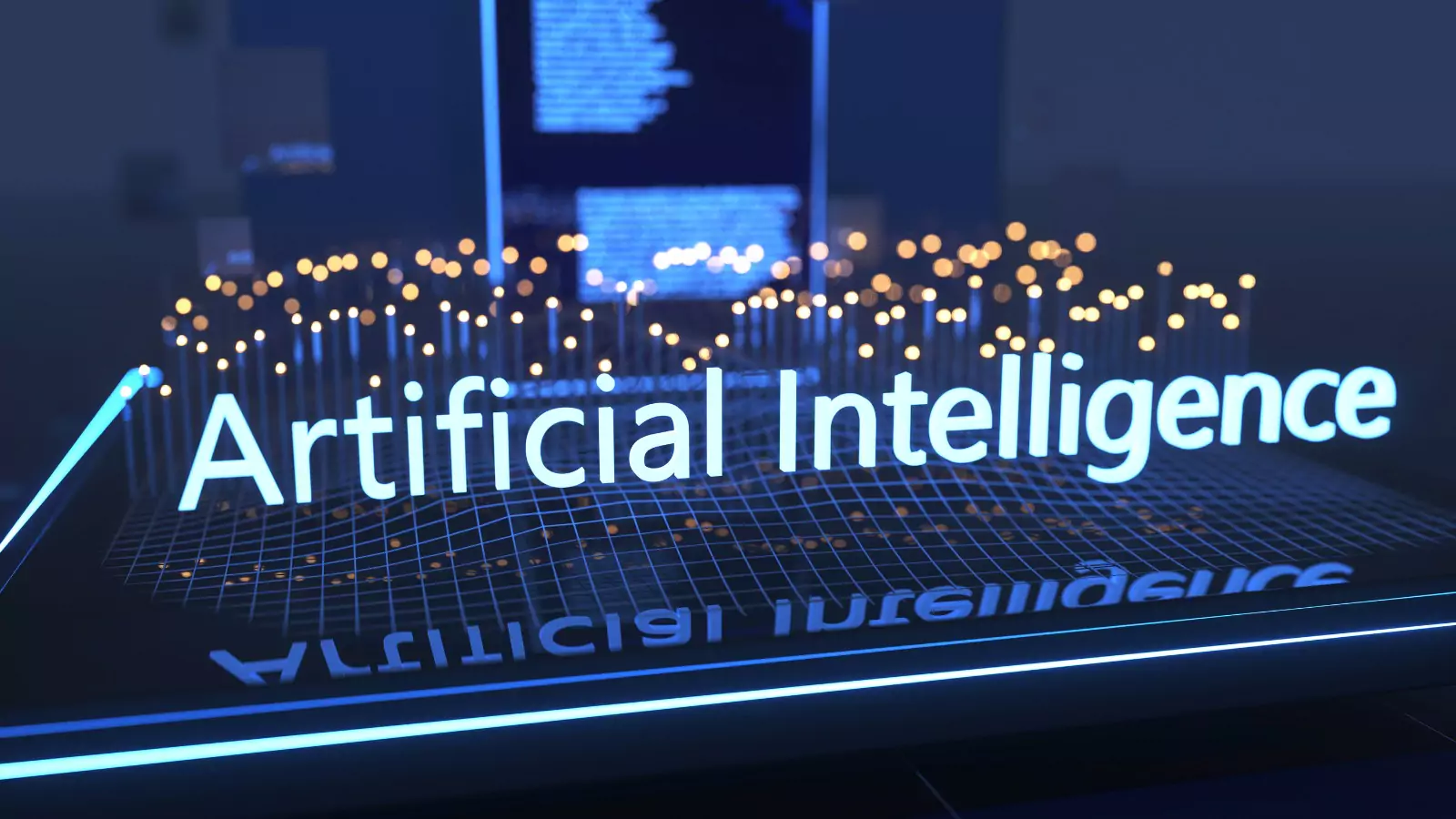
Artificial Intelligence (AI) is set to revolutionise the software development process, transforming how engineers design, develop, and deploy products. From automating mundane tasks to enabling the creation of feature-rich applications, AI is becoming a cornerstone of innovation in the tech industry.
Let’s delve into how AI is reshaping the landscape of software development and what it means for the future of software developer roles and responsibilities.
The Current Use of AI in Software Development

- Automating Routine Tasks: A New Era for Developers: In a groundbreaking shift, Artificial Intelligence is stepping in to manage the monotony of repetitive tasks. AI tools for software development, like GitHub Copilot and IBM Watson Code Assistant, are leading the charge, streamlining the software development process. These tools offer intelligent suggestions, even generating entire code snippets on command.
Developers on the ground report significant productivity boosts but caution that human oversight is still essential. “The tools are impressive, but quality and functionality depend on careful monitoring,” says Shashank, a seasoned software developer.
- Enhanced Debugging and Testing: Precision at Unmatched Speed: Bug fixes that once took days can now be accomplished in hours, thanks to AI. Drawing on historical data, AI-powered debugging tools identify issues with remarkable accuracy and recommend solutions almost instantaneously.
This innovation has revolutionised timelines in AI software development, enabling comprehensive testing frameworks that generate diverse test cases. Developers are hailing this capability as a game-changer for software reliability and user satisfaction.
- Improved Code Quality and Refactoring: Cleaner, Smarter, Better: The push for optimisation has found a steadfast ally in AI. By analysing existing codebases, AI suggests targeted improvements and facilitates seamless refactoring. This ensures cleaner, more maintainable code, a critical factor in the software development process.
According to experts, this is where AI’s impact truly shines, helping developers align with best practices and elevating software developer roles and responsibilities.
These developments underscore how AI will change software development and applications, marking a pivotal moment for the industry. The rise of these intelligent tools is not just about efficiency; it’s about enabling human developers to focus on creativity and innovation while technology takes care of the groundwork.
The Transformative Role of AI in the Software Development Process

- Revolutionising DevOps: AI is automating various aspects of DevOps, from continuous integration to deployment pipelines. By predicting system bottlenecks and optimising workflows, AI tools are enabling faster and more efficient software delivery.
This shift ensures that the software development process remains agile and responsive to market demands.
- Personalised User Experiences: Applications developed with the aid of AI can leverage user data to offer personalised experiences. By analysing behavioural patterns, AI can tailor features and functionalities, ensuring higher user satisfaction and engagement.
- Security and Vulnerability Analysis: AI is also becoming a key player in enhancing software security. It can proactively detect vulnerabilities in code and suggest fixes, allowing software developers to address potential risks before they escalate into significant issues.
Impact of AI on Applications
The integration of AI allows for the development of advanced, feature-rich applications. With the acceleration of the software development process, developers can focus on integrating cutting-edge functionalities that respond dynamically to user needs and environmental changes.
Applications powered by AI can now deliver highly personalised recommendations. These advanced recommendation engines, fuelled by AI algorithms, elevate the overall user experience, making them indispensable across industries like e-commerce, entertainment, and education.
Opportunities for Software Developers in an AI-Driven World

AI is redefining software developer roles and responsibilities. Instead of focusing solely on coding, developers are transitioning to roles that involve:
- architectural planning,
- system integration, and
- strategic problem-solving.
This evolution allows developers to engage more deeply in creative and high-impact work.
To thrive in this new landscape, developers need to acquire skills in areas like:
- machine learning,
- data science, and
- natural language processing.
Familiarity with AI frameworks such as TensorFlow and PyTorch is becoming increasingly important.
Additionally, soft skills like:
- adaptability,
- critical thinking, and
- interdisciplinary collaboration
are essential for navigating the complexities of AI-driven projects.
Challenges and Ethical Considerations
While AI offers immense potential, there is a risk of over-reliance. Developers must maintain a balance by combining AI-driven tools with manual practices to preserve core programming skills. This approach ensures that human ingenuity remains at the forefront of innovation.
The effectiveness of AI tools for software development hinges on the quality of training data. Bias in datasets can lead to unfair or suboptimal outcomes. Developers must prioritise the use of diverse, high-quality data to mitigate these risks and create ethical, user-focused applications.
Moreover, while AI automates many tasks, fears about job displacement are often exaggerated. Instead, AI is augmenting the capabilities of the software developer – enabling them to focus on more strategic and creative aspects of the software development process.
Future Trends in AI Software Development

Natural Language Programming: A New Frontier in Coding
Imagine a world where the software developer communicates with machines using plain language, erasing the barriers of complex programming syntax. This futuristic marvel is becoming a reality as AI evolves, enabling developers to describe their goals in natural language while AI tools for software development translate those instructions into precise, functional code.
This innovation not only streamlines the software development process but also democratises coding, making it accessible to non-technical professionals. Such advancements exemplify how AI will change software development and applications, fostering seamless collaboration across diverse teams.
Dynamic and Self-Evolving Applications: Living Software of the Future
Picture applications that learn, adapt, and evolve in real-time, responding autonomously to user behaviour and environmental changes. This cutting-edge concept, driven by AI software development, brings us closer to creating self-evolving systems. These intelligent applications redefine user interaction, offering hyper-responsive features and a seamless experience.
The future of software lies in these living systems, where the software developer engineers adaptive functionalities to stay ahead in an ever-changing technological landscape.
Data-Driven Development: From Code to Intelligence
The “Software 2.0” paradigm is reshaping the software development process, shifting focus from traditional coding to the art of crafting vast datasets that train sophisticated AI models. This revolutionary approach positions data preparation and model training as the core of AI software development, empowering developers to harness the power of machine learning.
As software developer roles and responsibilities evolve, this trend underscores the transformative potential of data, promising unparalleled efficiency and innovation in how AI will change software development and applications.
These scientific wonders highlight a future where AI transcends boundaries, making software development more intuitive, intelligent, and impactful.
Conclusion
AI is undeniably transforming software development by automating repetitive tasks, improving code quality, and enabling the creation of adaptive, feature-rich applications. However, the role of the human software developer remains indispensable. Creativity, ethical judgement, and contextual problem-solving are qualities that AI cannot replicate.
As AI continues to evolve, developers must embrace its potential while upskilling to stay relevant. The synergy between human expertise and AI-driven tools promises to unlock unprecedented levels of efficiency, innovation, and user satisfaction in the world of AI software development.
Read Also Best AI Apps for Students For Writing Research Papers
Powerful Moot Court Tips To Ace It – For First-Time Participants





